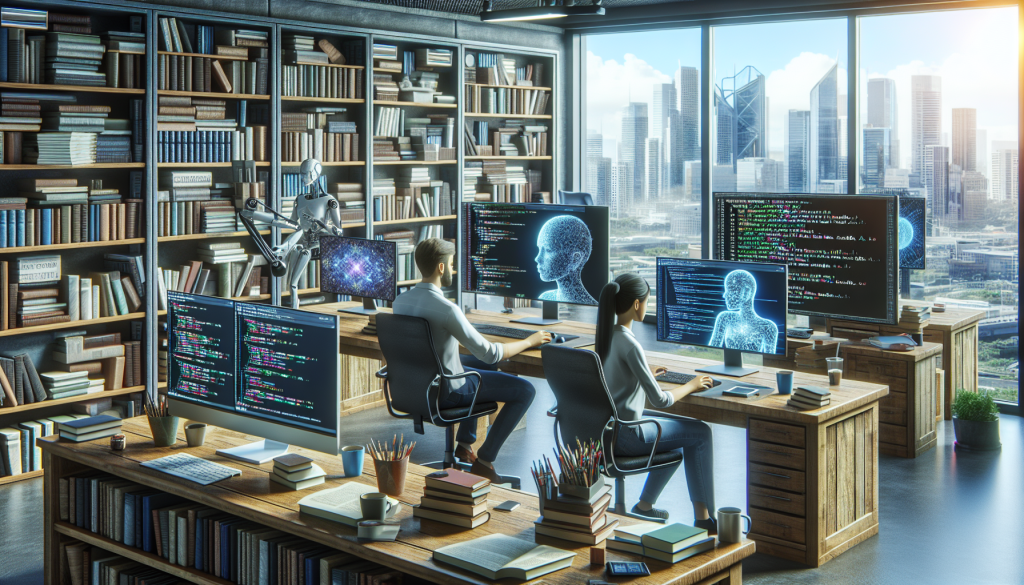
In the ever-evolving landscape of software development, the integration of generative AI holds the promise of transformative enhancements. As developers face the complexities and demands of modern software creation, tools and techniques powered by artificial intelligence (AI) have become indispensable, offering new ways to design, develop, and optimize applications. This article explores the potential of generative AI for developers, highlighting how it is reshaping the industry and providing a modern approach to tackling programming challenges.
Generative AI refers to a subset of artificial intelligence focused on creating new content by learning patterns from existing data. This encompasses the generation of text, images, music, videos, and even code. Utilizing neural networks, particularly models like the Generative Adversarial Network (GAN) and Transformer-based models, generative AI can produce unique outputs that mimic human creativity. For developers, this means harnessing AI to assist in various stages of software development, from code generation to application design.
The integration of generative AI into the developer’s toolkit is facilitated by various pioneering tools. Platforms like GitHub Copilot and Google’s AI tools provide developers with powerful capabilities to generate and optimize code. GitHub Copilot, for instance, uses OpenAI’s Codex to suggest lines of code or entire functions, drastically reducing the time spent on writing boilerplate code. Similarly, Google’s offerings include tools like Vertex AI and the Gemini Developer API, designed to accelerate development workflows by integrating AI functionalities seamlessly.
Generative AI not only assists with coding but also enhances a developer’s overall programming skills. By learning to leverage these AI tools, developers can focus on refining algorithm design and problem-solving abilities. AI-driven suggestions act as educational resources, continually updating a developer’s knowledge base with best practices and cutting-edge techniques. Moreover, tasks like debugging, testing, and documentation generation become more streamlined, giving developers the freedom to concentrate on innovation and complexity.
The end-to-end cycle of application development is considerably improved through generative AI. During the design phase, AI can rapidly prototype user interfaces and simulate user experiences, helping teams visualize and iterate quickly. As applications move to development, AI-generated code reduces human error and accelerates time-to-market. Additionally, AI facilitates the optimization of applications post-launch by analyzing user feedback and offering insights for continuous improvement.
While the benefits are substantial, responsible use of generative AI is crucial. Concerns of fairness, bias, and data privacy must be addressed to deploy AI solutions ethically. Courses like Google Cloud Skills Boost’s learning path emphasize the importance of understanding AI principles and strategies for bias mitigation. By adopting responsible AI practices, developers ensure their applications are not only efficient and powerful but also trustworthy and fair.
The future of generative AI in software development is vast and promising. As AI models become more sophisticated, the potential for their application in developing complex systems like AI-driven simulations, virtual realities, and automated software solutions continues to expand. For developers, staying ahead of these trends through continuous learning and adaptation is key to unlocking AI’s full potential. Educational pathways, such as those offered by Coursera’s specialization programs, provide developers with the skills needed to harness AI effectively.
Harnessing generative AI represents a modern approach to software development, blending the ingenuity of human developers with the computational brilliance of AI. By integrating these tools into their workflows, developers are not just enhancing their capabilities but are also pioneering a new era of innovation in the tech industry. The journey towards AI-driven development is not only about embracing cutting-edge technology but also about adopting responsible practices to create solutions that are as ethical as they are effective. As the field continues to evolve, the collaboration between developers and AI will redefine the boundaries of what’s possible, making generative AI an indispensable ally in the world of software development.